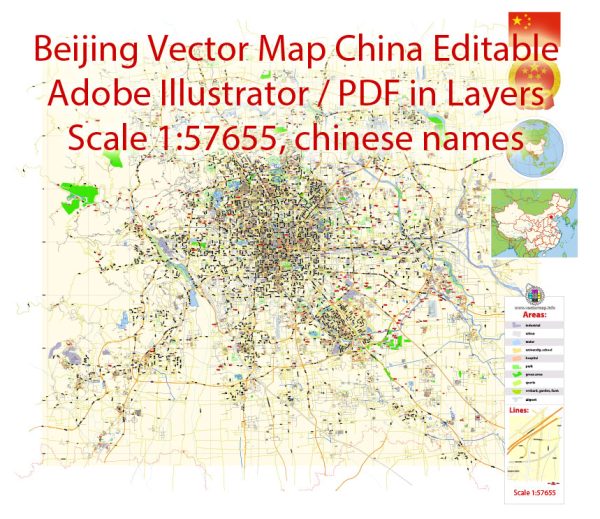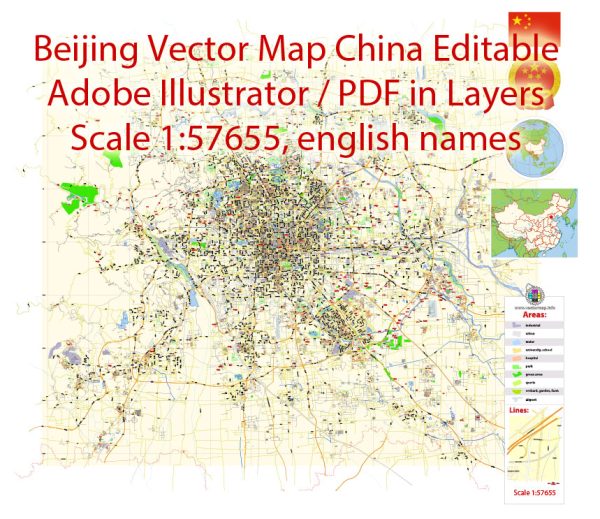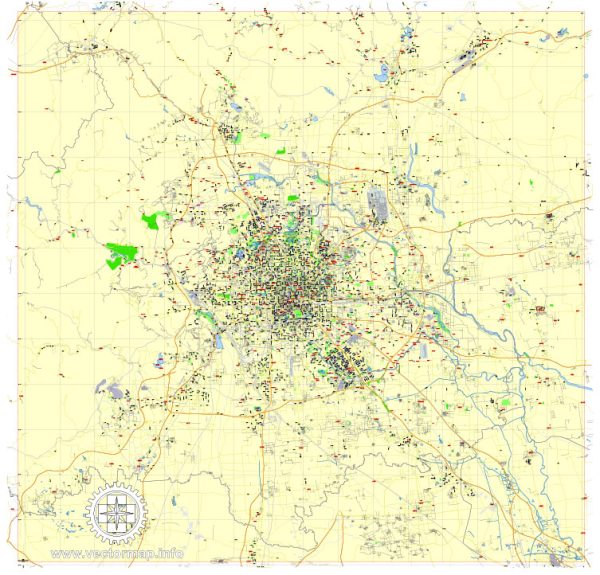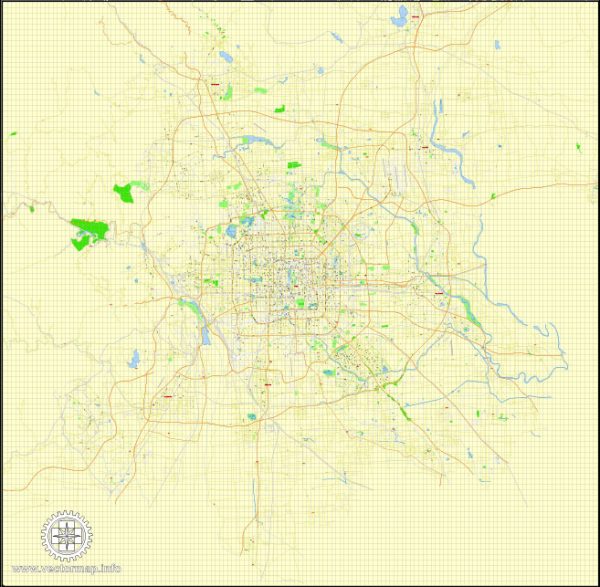A general overview of the economic and industrial landscape of Beijing, China.
Vectormap.Net provide you with the most accurate and up-to-date vector maps in Adobe Illustrator, PDF and other formats, designed for editing and printing. Please read the vector map descriptions carefully.
Economic Overview: Beijing, as the capital of China, plays a crucial role in the country’s economy. It serves as a political, cultural, and economic hub. The city has experienced rapid economic development over the past few decades, contributing significantly to China’s overall economic growth. Key sectors driving Beijing’s economy include finance, technology, education, and research.
1. Finance: Beijing is home to numerous financial institutions, including major banks, investment firms, and the headquarters of some of China’s largest state-owned enterprises. The city’s financial district, often referred to as the Financial Street, is a key financial center.
2. Technology and Innovation: The technology sector is a major driver of Beijing’s economy. Zhongguancun, often called China’s Silicon Valley, is located in Beijing and is a renowned technology hub. It hosts numerous technology companies, research institutions, and startups, fostering innovation and research and development.
3. Education and Research: Beijing is home to several prestigious universities and research institutions, such as Peking University and Tsinghua University. These institutions contribute to the city’s intellectual capital and act as centers for research and innovation.
4. Tourism: As the capital city, Beijing attracts a significant number of domestic and international tourists. Historical landmarks like the Forbidden City, the Great Wall of China, and the Temple of Heaven contribute to the city’s tourism industry.
5. Manufacturing and Industry: While Beijing is not known for heavy manufacturing compared to some other Chinese cities, it still has a diverse industrial base. Industries include electronics, automotive, pharmaceuticals, and aerospace. The city is also a transportation hub, with a well-developed infrastructure for logistics and distribution.
6. Real Estate: The real estate sector has been a prominent aspect of Beijing’s economic growth. The city has witnessed extensive urban development, with the construction of commercial and residential properties.
Challenges: Despite its economic success, Beijing faces challenges such as environmental pollution, traffic congestion, and housing affordability. The government has implemented measures to address these issues and promote sustainable development.
Government Initiatives: The Chinese government has launched initiatives to further develop Beijing as a global financial and technological hub. Policies aimed at innovation, research and development, and financial market reform continue to shape the economic landscape of the city.
For the latest and most accurate information, it is advisable to consult recent reports and sources.






 Author: Kirill Shrayber, Ph.D. FRGS
Author: Kirill Shrayber, Ph.D. FRGS